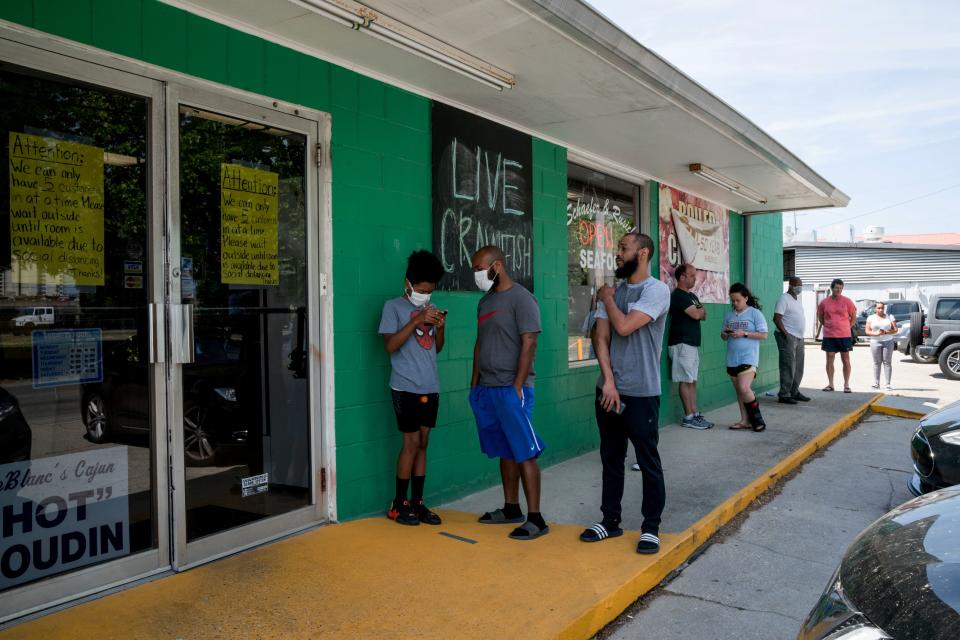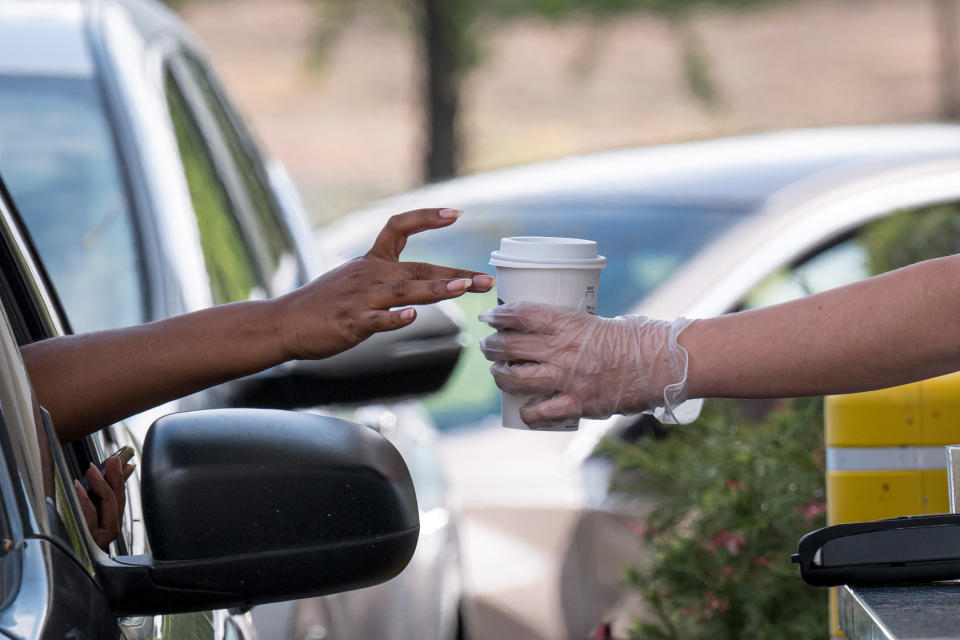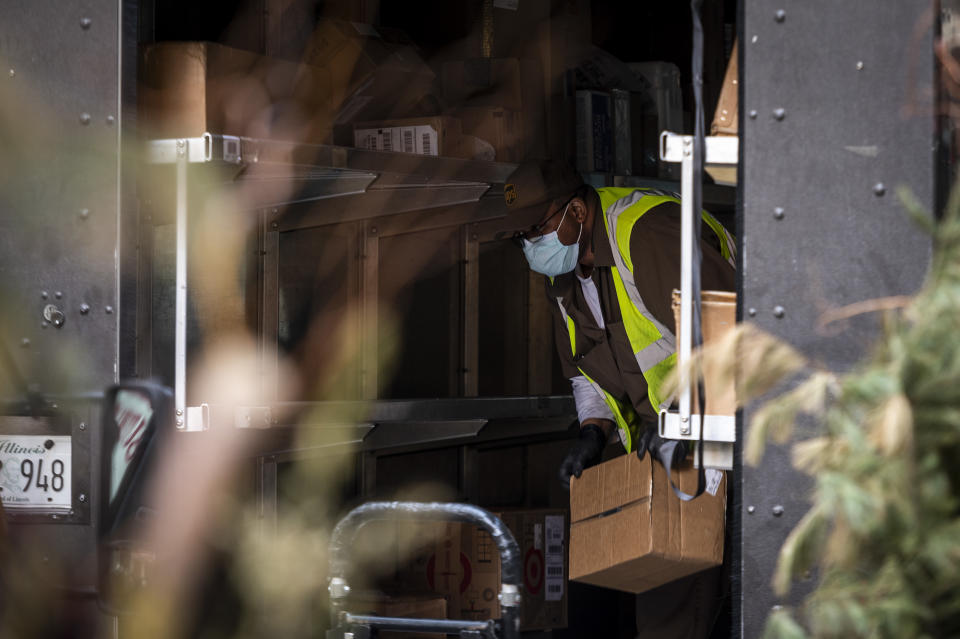Public health expert calls for 'no-cost' coronavirus testing and treatment to end racial disparities

The story of the coronavirus in the U.S. shows discrepancies by geography, age, sex and other factors, but one stands out above all: that black Americans are infected with the virus and die from it at disproportionately higher rates than any other group in the country. National coronavirus data based on race from the White House has been sparse to nonexistent, but information released by states and local municipalities has shown how drastic the disparity is in particular regions of the country.
A Washington Post report last week found that majority-black counties have three times the rate of infections and almost six times the rate of deaths as majority-white counties.
In Michigan, black Americans account for 14 percent of the population, but make up 40 percent of the coronavirus deaths. In Milwaukee, black Americans make up 26 percent of the county, but make up more than 80 percent of its deaths. In Chicago, black residents account for 72 percent of coronavirus deaths, despite making up just 29 percent of the city’s population, according to NPR.
In North Carolina’s Mecklenburg County, which includes Charlotte, black Americans constitute about 33 percent of the residents but account for almost 44 percent of the confirmed coronavirus cases, as of March 30.
Maryland's Department of Health released a report April 9 that found black residents make up 52 percent of coronavirus-related deaths, even though they account for only 31 percent of the state's population. Gov. Larry Hogan has made a practice of publishing race and ethnicity data about COVID-19.
“The disparity among African-Americans is very disturbing,” Hogan, a Republican, said on ABC’s “This Week” Sunday. “It’s where we’re directing all the resources.”

Black Americans have a history of being affected by national health crises in a catastrophic way. They are less likely to be insured and to be able to afford testing, but they are more likely to have underlying medical conditions. Decades of economic, environmental and political disadvantages have caused black Americans to be at higher risk of chronic conditions.
It’s these hard truths that Sen. Kamala Harris wrote about Thursday in a piece for Elle magazine. “Pre-existing conditions combined with having high-exposure jobs and inadequate health care is leading to the deadly consequences we are seeing across the country,” Harris wrote. “The United States has the chance, during this National Minority Health Month, to right historical wrongs.”
U.S. Surgeon General Jerome Adams recently said that his own health problems, including lifelong asthma, represent a “legacy of growing up poor and black in America.”
“People of color are more likely to live in densely packed areas and in multigenerational housing situations, which create higher risk for spread of a highly contagious disease like COVID-19,” Adams said at an April 9 White House briefing.
Blacks’ historical mistrust of the U.S. government, grounded in such infamous episodes as the Tuskegee study, compounds these issues. In 1932, the U.S. Public Health Service recruited 600 poor black men for a study in which they were denied treatment for sexually transmitted disease so researchers could track their progress. The program was exposed and ended in 1972, but it wasn’t until 1997 that then-President Bill Clinton formally apologized for it.
Dr. Anthony Fauci, the U.S. government’s foremost infectious disease expert, has joined health experts in pointing to chronic health conditions as a reason for higher coronavirus mortality among black Americans. Last week, Fauci said the racial divide reminds him of a similar pattern he observed during the height of the AIDS epidemic, which disproportionately affected African-American men. Fauci was a critical part of the response to that crisis.
The issues disproportionately affecting the black community have been known for some time. But what are the solutions?

Dr. Leana Wen, an emergency physician and professor of public health at George Washington University, believes it’s not enough to “admire the problem,” but that there need to be both short-term and long-term strategic moves to fix the issues. Wen previously served as Baltimore’s health commissioner.
“There is a lot of misinformation that needs to be debunked,” she told Yahoo News. In the short term, Wen says there should be aggressive outreach to communities of color by respected leaders and ramped-up free testing. “We need people who are from the communities they serve or live in to be these [leaders]. We also need to make testing and treatment accessible at no cost. ... Otherwise people will be too scared to seek care.”
Wen said the worldwide health crisis calls attention to the issue of privilege in the U.S. because only some people can afford to be tested for the coronavirus. “There needs to be no strings attached,” she said, in ensuring Americans are tested and can receive follow-up treatment for free. In the long term, Wen is calling for universal health care, paid sick leave and environmental justice. “We need to recognize that improving health is not enough unless we fix it for everyone and aim to reduce disparities as a key goal,” she said.
These sentiments are shared by health professionals across the country. Dr. Edmond Baker, medical director at Equality Health in Phoenix, says short-term steps to slow the spread of the coronavirus need to include expanding stay-at-home mandates to cover more workers who use crowded public transit to get to their jobs, limiting the numbers of riders and rides on buses and trains, increasing health care access points and providers and expanding the health insurance system.
“We need to stay out, away from where the virus is, and if we are part of the population that has to come in contact, that we have the proper protective equipment,” Baker told Yahoo News. “We understand what putting that equipment on means and how to protect our loved ones at home.”
Baker admits that long-term solutions are not easy, but says there are ways to prevent these problems from happening in the future. “[We need] more resources, which includes more testing supplies, more access or easier access to physicians and improvements in community partnerships.”
Baker is a member of the Black Arizona COVID-19 Task Force, a group of educators, physicians, public officials and public health administrators who strive to ensure that black Arizonans have accurate and readily available information on COVID-19. “There’s tons of resources in one place that could be put towards a problem if one could be identified,” he said. “So I would urge all communities of underrepresented patients to do such types of organizations and really empower them to help elicit change.”

Organizations like that can make a big difference locally, but broader policy changes will be required to make health outcomes more equitable across the population. Rev. Raphael Warnock, senior pastor of Ebenezer Baptist Church in Atlanta, has been engaged in this effort for a long time.
“What we are seeing in this virus is what many of us have seen for years and the kinds of work that we’ve been engaged in,” Warnock told Yahoo News. “[We need] to deal with disparities in health care and access to affordable care.”
Warnock believes change happens through policy, and he’s committed to playing a role in leveling the field. He is running as a Democrat in a special election to fill a U.S. Senate seat in November, and says his experience as a minister has shaped his view on the needs of the black community. “These are the challenges that ordinary working people are dealing with every day,” he said. “We are the most powerful nation on earth, and part of what makes us a great nation is not necessarily our material wealth, but the wealth of spirit. [It’s our] ability to respond to a crisis like this and stand up and show up for one another.”
Rev. Raphael Warnock’s title and affiliation in the video are for identification purposes only.
_____
Click here for the latest coronavirus news and updates. According to experts, people over 60 and those who are immunocompromised continue to be the most at risk. If you have questions, please refer to the CDC’s and WHO’s resource guides.
Read more from Yahoo News:



